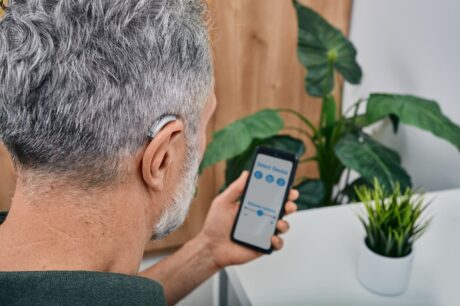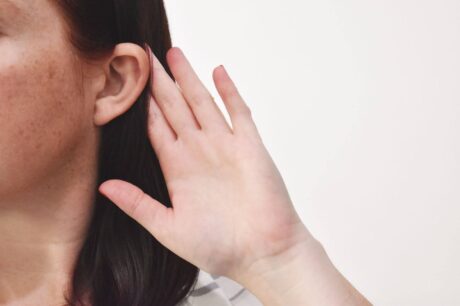Our eardrums, though small, play a vital role in our everyday lives, enabling us to hear the world around us. This thin, flexible membrane separates the outer ear from the middle ear, vibrating as sound waves enter and creating signals that our auditory nerve sends to the brain for interpretation.
However, our eardrums are as delicate as they are essential, and they can be susceptible to rupture or perforation if placed under too much stress. This condition can impact both hearing and balance.
What Is a Ruptured Eardrum?
A ruptured eardrum, also known as a perforated eardrum, occurs when there is a tear or hole in the membrane. This tear prevents the proper transmission of sound waves to the middle ear, potentially leading to hearing loss.
The severity of a ruptured eardrum can vary, ranging from a small hole that heals quickly to a larger tear that may require medical intervention.
What Causes a Ruptured Eardrum?
Here are some common culprits behind ruptured eardrums:
- Middle ear infection: Accumulated fluids in the middle ear from the infection can put pressure on the eardrums, causing the perforation.
- Foreign objects in the ear: Inserting objects like cotton swabs, hairpins, or even fingers into the ear canal may damage the eardrum.
- High impact: A direct blow to the head or ear during a sports injury, accident, or assault can cause a ruptured eardrum.
- Sudden explosive sounds: Exposure to extremely loud noises, such as explosions, gunshots, or even excessively loud music, can generate enough pressure to rupture the eardrum.
- Barotrauma: A change in air or water pressure, such as during scuba diving or aeroplane travel, can create an imbalance between the pressure in the middle ear and the surrounding environment. This imbalance may cause the eardrum to rupture.
Perforated Eardrum Symptoms
If you suspect you may have a perforated eardrum, watch out for these common symptoms:
- Tinnitus: This is characterised by a ringing and buzzing in the ears, which can vary in intensity and pitch.
- Ear pain: You may experience sudden and sharp pain behind the ear, ranging from mild to severe.
- Drainage from the ear: Fluid leaking from the middle ear may be bloody, clear, or cloudy.
- Hearing loss: While you can still hear with a ruptured eardrum in milder cases, hearing loss may still occur depending on the size and location of the perforation.
- Itching: You may experience an itchy ear canal as the skin heals.
- Dizziness: A ruptured eardrum can affect your balance, leading to dizziness or vertigo.
Diagnosis for Ruptured Eardrums
If you experience any of the above symptoms or suspect you have a ruptured eardrum, it’s crucial to seek prompt medical attention from a hearing care provider. A hearing specialist can accurately diagnose your condition and recommend appropriate treatment.
During the consultation, they may use an otoscope to visually examine the eardrum, conduct an audiology exam to assess your hearing, or perform tympanometry to measure the eardrum’s movement.
How to Heal a Ruptured Eardrum
The good news is that many ruptured eardrums can mend themselves, with the typical healing time ranging from two to three months. During this time, it’s vital to keep the ear dry and avoid inserting anything into the ear canal.
Your doctor may prescribe antibiotics to prevent or treat infection and painkillers to manage discomfort. You can also try home remedies like applying a warm or cool compress to the ear for pain relief.
However, for more severe cases in which the eardrum doesn’t heal naturally, or the tear is large, a surgical procedure may be necessary to repair the eardrum.
Healthy Eardrums, Healthy Hearing

Proactive ear protection and prompt care can significantly mitigate or even prevent eardrum ruptures. This includes simple measures like avoiding the insertion of foreign objects into your ears, wearing earplugs in noisy environments, and seeking timely medical attention for any ear infections
However, if you suspect you have a ruptured eardrum or are experiencing any hearing-related concerns, don’t hesitate to seek professional help. Remember, early intervention is key to preventing further complications and ensuring proper healing.
If you’re looking for an audiologist in Singapore, the Listening Lab is a trusted provider of comprehensive hearing healthcare services, such as hearing tests and tinnitus treatment. Don’t let hearing concerns hold you back – contact us today to schedule a consultation and take the first step towards better hearing.


















